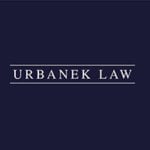-
Overview
Jersey is the largest of the Channel Islands, and is a self-governing British Crown Dependency which has its own financial and legal systems distinct from those of its nearest neighbours the United Kingdom, France and Guernsey.
The Island’s property law is based on Jersey customary law, which itself has derived from the customary law of Normandy, and statute. Property in Jersey is classified as immovable and movable (broadly similar to the English concepts of real and personal property). Land and the buildings constructed thereon are immovable property, but the concept also includes leases for a term greater than 9 years (a “Contract Lease”), and certain (but not all) creditor rights.
-
What is the main legislation relating to real estate ownership?
The statutory foundation of Jersey property law is the Loi (1880) sur la propriété foncière. This law, as with many relating to immovable property, is drafted in the French language, which was previously the language of the Courts in Jersey. The guiding statutory principles remained largely unchanged until the enactment of the Loi (1991) sur la co-propriété des immeubles bâtis (the “Flying Freehold Law”), which introduced the concept of ‘flying freehold’ into Jersey law.
The Control of Housing and Work (Jersey) Law 2012 (“CHWL”) deals with the regulation of ownership of immovable property.
-
Have any significant new laws which materially impact real estate investors and lenders come into force in the past year or are there any major anticipated new laws which are expected to materially impact them in the near future?
- The Financial Services (Jersey) Amendment Law 202- was adopted by the States in July 2025, but has yet to come into force. This amendment law will introduce a regime of consumer protection for certain local lending transactions. It will regulate ‘consumer credit business’, and aims to introduce a regime of protection for consumers which will align Jersey with other jurisdictions. This is a significant legislative introduction, which will be relevant to lenders and consumers alike.
- In September 2025 the States adopted the Residential Tenancy (Jersey) Amendment Law 202- which seeks to reform the residential tenancy market in the Island. The amendment law has yet to come into force. Among its objectives are the abolition of ‘no fault’ evictions, the regulation of fixed-term tenancies and the introduction of rent stabilisation measures (including the establishment of an independent rent tribunal). The changes will be impactful for landlords of residential property, and the changes being introduced to the regulatory regime will need to be considered carefully when preparing new (or renewing) tenancy agreements.
It is anticipated that the Government of Jersey will be introducing legislation to introduce Jersey Energy Performance Assessments, as detailed at 22 below.
-
How is ownership of real estate proved and are ownership records available for public inspection?
Whilst there is no Land Registry or system of registered title in Jersey, all contracts which relate to immovable property must be passed before the Royal Court of Jersey in order to be legally binding and valid.
Once passed before the Royal Court, the contracts are registered in the Public Registry of Jersey and are thereafter available for public inspection.
If a property is acquired by share transfer (see 6 below), there is no requirement to register the details of the transfer in the Jersey Public Registry, although the transfer must be registered in the relevant company’s shareholder register in the usual way.
-
Are there any restrictions on who can own real estate, including ownership by any foreign entities?
Due to the size of Jersey and the resulting scarcity of land, the real estate market is regulated by the Government. The majority of transactions involving the acquisition, lease or transfer of immovable property in Jersey are subject to regulations and/or will require consent of the Housing Minister of the Government of Jersey.
Residential properties
-Ownership (and occupation) of residential accommodation is heavily regulated by the provisions of the CHWL, which seek to preserve housing for locally qualified residents. It is possible for persons without the requisite housing qualifications to acquire share transfer properties (see below), however they will usually be unable to occupy such properties without the requisite consents. It would be unlikely that foreign entities would be given consent to acquire residential properties.Commercial properties
-Commercial properties are more readily available to be acquired by foreign entities. The acquisition of commercial properties requires consent under the CHWL (which in the case of an acquisition by a non-natural person requires detailing of the ultimate beneficial owners to the Housing Minister). Entry into leases for commercial property does not require consent under the CHWL, unless the commercial property contains any residential accommodation, in which case CHWL consent will be required. -
What types of proprietary interests in real estate can be created?
Freehold
Whilst the term ‘freehold’ is frequently used, the actual term in Jersey law is propriété a fin d’heritage, or ownership in perpetuity. This is akin to freehold ownership in other jurisdictions and is the most comprehensive form of ownership in Jersey, granting the holder ownership of the land and everything above or below it.
Flying Freehold
This form of ownership was introduced in 1991 by the Flying Freehold Law which provides for the division of multiple dwelling properties (such as apartment blocks) in order for distinct units to be sold to private owners. An owner of a flying freehold unit (known as a “share” or “lot”) has exclusive ownership of that unit together with a percentage interest in the collective property comprising the building(s) structure and the land on which it is established. These details are all specified in a co-ownership declaration, which also governs the rights and obligations of each co-owner, which is registered in the Public Registry.
Share Transfer
This mode of ownership was essentially developed as a means of subdividing buildings prior to the introduction of the Flying Freehold Law. It does not create a tenure in immovable property, but exists where the property is owned by a Jersey company and the purchaser acquires shares in that company which grant it express rights to use and enjoy a specific private unit. New share transfer structures have been phased out since December 2021, with the Government now essentially requiring developers of multi-property dwellings to establish flying freehold structures instead. However, many developments on the island have been structured in this way, so share transfers will continue to be seen in these existing developments.
Long Leasehold
Unlike in the UK, it is rare to see long leaseholds (e.g. in excess of 99 years) of land in Jersey, as interests in multi-dwelling properties are more likely to be structured by way of share transfer or flying freehold. Some larger commercial estates, including those established on reclaimed land at Jersey’s waterfront and financial centre, are structured as long leasehold estates.
-
Is ownership of real estate and the buildings on it separate?
Generally, ownership of real estate in Jersey does not distinguish between the land and the buildings thereon, following the principle that an owner of land is considered to own everything above it and below it (“qui a le sol a le dessus et le dessous”). There are limits to this principle, notably in respect of flying freeholds, which provide for the horizontal sub-division of property so that the owners of each unit will only have exclusive ownership of their specific unit (albeit they will have a share in the ownership of the building(s) and the land – see 6 above).
Additionally, there are certain practicable limitations and statutory exceptions, such as the laying of service media by utility providers.
-
What are common ownership structures for ownership of commercial real estate?
Much will depend on the preliminary tax advice provided to an investor. The CHWL may also dictate how an institutional investor is permitted to acquire an interest in Jersey commercial real estate.
Whilst non-Jersey resident investors often acquire the freehold of Jersey commercial real estate directly into their existing structures, it is more usual for non-resident investors to establish a Jersey company to be used as an SPV for the purposes of acquiring the freehold.
Historically, it may have been preferable for investors to acquire the asset indirectly by acquiring the shares in an existing property holding company, however the introduction of enveloped property tax (see 17 below) has removed any stamp duty advantage. Accordingly, as acquiring an existing corporate entity carries with it the usual risks associated with pre-existing other liabilities and there are additional costs in undertaking corporate due diligence, it would now seem most likely that an SPV would be utilised to acquire the freehold directly, rather than indirectly via acquisition of shares.
Other vehicles, such as limited partnerships, are rarely used to acquire Jersey real estate. In addition, pursuant to the provisions of the Trusts (Jersey) Law 1984 it is not possible to have a direct trust of immovable property in Jersey.
-
What is the usual legal due diligence process that is undertaken when acquiring commercial real estate?
All conveyances of Jersey immovable property are required to be passed before the Royal Court and registered in the Jersey Public Registry. Such conveyances contain a description of the land being acquired, details of the adjoining properties and ownership thereof, the servitudes, rights and covenants that attach to the property, and a statement of the provenance of property ownership for at least 40 years (being the period of acquisitive prescription).
As there is no system of registered title, there is also no State guarantee of title to immovable property in Jersey. It is the responsibility of the purchaser’s lawyer to undertake researches within the Public Registry to track the routes of title to ascertain the past ownership of the property, confirm the boundaries, and the servitudes, rights and covenants that attach to the property. In addition to title researches, due diligence involves enquiries of the seller and searches of the various utility providers and Government departments (including planning and infrastructure).
It is common practice for conveyances to contain a statement that the property is sold with all apparent or hidden defects (vices cachés) and so the burden is on the purchaser to satisfy themselves as to the nature and condition of the property (in addition to the legal title). This statement however would not prevent a claim for misrepresentation.
Where a property is sold by transfer of shares in a property holding company, in addition to the above due diligence, there would need to be specific enquiry of the property holding company to ensure that it has been administered in a manner compliant with law.
-
What legal issues (if any) are outside the scope of the usual legal due diligence process on an acquisition of real estate?
It is not usual for detailed environmental surveys to be carried out as part of the legal due diligence process on an acquisition of real estate (commercial or residential). Specialist surveys may be procured from a third-party consultant.
Detailed construction and survey reports are sometimes obtained, but again fall outside the scope of the legal due diligence process.
-
What is the usual process for transfer of real estate, and when does liability pass to the buyer?
Freehold and flying freehold properties are acquired by passing a contract of conveyance before the Royal Court on a Friday afternoon. The transfer of ownership of real estate is effective immediately on passing the conveyance, and liability similarly passes immediately to the buyer, even if vacant possession is given at a later time.
Share transfer properties are acquired by execution of a share purchase agreement, which will provide for completion timings and mechanics. Generally, completion occurs on the completion date provided for within the share purchase agreement and liability will pass to the buyer immediately on completion.
-
Is it common for real estate transfers to be effected by way of share transfer as well as asset transfer?
It is possible in Jersey for real estate to be transferred by way of share transfer. Previously it was popular for entire freehold (commercial) properties to be transferred by way of transfer of the entire issued share capital of a property holdings company as this manner of acquisition was did not incur the same charge to stamp duty that would be applicable on the acquisition of the freehold itself as an asset. Enveloped property tax (detailed below) introduced a new form of taxation (with levels broadly equivalent to stamp duty) that applies to the transfer shares in a property holding company (over certain de minimis levels) and so the taxation benefit has now been removed.
It is, however, still relatively common for existing apartments to be structured and conveyed as ‘share transfer’ properties (see above).
-
On the sale of freehold interests in land does the benefit of any occupational leases and income derived from such lettings automatically transfer to the buyer?
If the occupational lease is a Contract Lease, the lease will automatically be binding on the landlord’s successor, who will also become entitled to the income thereunder.
In contrast, a paper lease (i.e. a lease for a term 9 years or less, which isn’t registered before the Royal Court) will only be binding on the landlord’s successor if the purchaser undertakes to recognise the lease in the purchase contract, which would also be expected to address the apportionment of income derived under the lease.
-
What common rights, interests and burdens can be created or attach over real estate and how are these protected?
The majority of rights, interests and burdens created or attaching over immovable property in Jersey are created by passing a hereditary contract before the Royal Court. Such contracts are passed consensually between the respective property owners in order to create, amend or cancel rights, interests or burdens in relation to immovable property. The main exception relates to natural servitudes that would affect the land, such as the right for water to pass through or the burden of naturally occurring rock fall that can affect property without having been consensually created.
Every time a property is transferred, a conveyance is required to be passed before the Royal Court and such conveyance details all of the rights, interests and burdens attaching to the property being conveyed. All conveyances in relation to immovable property are registered in the Public Registry of Jersey and the rights, interests and burdens are readily ascertainable by a search of the Public Registry.
In the event that a party breaches a right, interest or burden attached to the property, an action would need to be brought before the Royal Court of Jersey for a judgment in relation thereto.
-
Are split legal and beneficial ownership of real estate (i.e. trust structures) recognised?
The Trusts (Jersey) Law 1984 provides that a trust (whether Jersey or foreign) shall be invalid to the extent that it purports to apply directly to immovable property situated in Jersey.
However, trusts over shares are permitted, and so it is possible to have a trust over share transfer property, or a trust over the shares in a company which owns immovable property.
-
Is public disclosure of the ultimate beneficial owners of real estate required?
Where immovable property is owned by a company, only the company name will appear in the Public Registry. The ultimate beneficial owner of the company must be disclosed to the Jersey Financial Services Commission (“JFSC”) and the Housing Minister of the Government of Jersey, but this information is not disclosed on the Public Registry.
Where shares in a share transfer property are held by a company or trust, the ultimate beneficial owner will not be noted on the register of members, but the UBO will need to be disclosed to the JFSC.
-
What are the main taxes associated with real estate ownership and transfer of real estate?
Goods and Services Tax (“GST”)
Depending on the nature of the property and the GST status of the parties to the transaction, GST may be payable. A supply of commercial real estate (either by sale or lease) is a taxable supply, and will be subject to GST at the standard rate (currently 5%). The factual circumstances may allow a transaction to be treated as a transfer of a going concern, and thus outside the scope of GST. The supply of residential property will typically be zero-rated for GST.Stamp Duty
Stamp duty is payable on all acquisitions or transfers of freehold and flying freehold immovable property. Stamp duty is ordinarily payable by the purchaser and must be paid in full at the time the contract is passed before the Royal Court.The amount payable depends on the purchase price (or market value of the property in the event of a gift or sale at an undervalue), and there are different rates depending on whether the property is residential or commercial.
There are certain concessions or exemptions available (for example where a purchaser meets first time buyer criteria). Where a residential property being acquired will not be the main residence of the purchaser, higher rates of stamp duty apply. In addition, as of 1 January 2025 intra-group relief is be available in specific circumstances.
Where immovable property is inherited under a Will, stamp duty is payable on the total aggregate value of all of the immovable property devised by the Will. The rates are the same as the standard rates for a residential purchase, and is payable at the time the Will is registered in the Public Registry. Concessionary rates may be available, depending on the circumstances.
For Contract Leases stamp duty is payable on the passing of the lease before the Royal Court (or on the assignment of an existing Contract Lease). If a premium is to be paid, the stamp duty is calculated at the same rates used for freehold/flying freehold acquisitions (including higher rates where the lease is for a residential property which is not the tenant’s main residence). Otherwise, stamp duty on Contract Leases is calculated by reference to the commencing annual rent.
Paper leases do not come within the scope of stamp duty.
Land Transaction Tax (“LTT”)
LTT is governed by the Taxation (Land Transactions) (Jersey) Law 2009, which was designed to bring the tax treatment of share transfer property transactions in line with that of freehold/flying freehold transactions. Before the introduction of LTT, no tax was paid on share transfer transactions.Enveloped Property Transactions Tax (“EPTT”)
EPTT was introduced by the Taxation (Enveloped Property Transactions) (Jersey) Law 2022, which came into force in April 2022.Previously, the acquisition or transfer of shares in a corporate entity which owned or leased property in Jersey was generally outside the scope of stamp duty or LTT. The EPTT law was introduced to address this perceived inequity by bringing in a tax equivalent to stamp duty/LTT that will be payable on such transactions.
Generally, EPTT will apply where a party acquires a significant interest (e.g. 50% or more of the total issued share capital) in an entity owning enveloped property in Jersey, or in an entity which controls the enveloped property-owning entity, provided that the market value of the enveloped property is above the threshold.
EPTT will apply where the enveloped property is held under a Contract Lease which meets the valuation threshold.
Paper leases are outside the scope of EPTT.
Rates
There are no business rates or council taxes in Jersey. Instead, each Parish in the Island levies annual rates, which are governed by the Rates (Jersey) Law 2005, on both the owner and occupier of property (commercial and residential).Income Tax
Under Jersey’s zero/ten tax regime, a company resident in Jersey is generally liable to income tax at a rate of 0%. There are however exceptions to this, so that income earned from land (including rent received pursuant to a lease, and development profits) is taxed at the standard rate, which is currently 20%.Non-resident landlords who receive rental income from Jersey property may be liable to have tax at the standard 20% rate withheld from rental payments.
Capital Gains Tax
Jersey does not have capital gains tax.Inheritance Tax
Jersey does not have inheritance tax, although as noted, stamp duty may be payable on registration of a Will, and there is nominal LTT payable on inherited share transfer property. -
What are common terms of commercial leases and are there regulatory controls on the terms of leases?
Commercial leases generally contain the usual provisions seen in other jurisdictions, and are normally on a fully repairing and insuring basis, meeting the standard requirements of institutional lenders.
As Contract Leases require registration at the Royal Court, and so incur stamp duty, it is relatively common for commercial leases to be for a term of 9 years, with upwards only rent reviews every three years, either to an open market rent or in line with increases in the Jersey Retail Prices Index. More substantial commercial leases are often on 15 or 21 year terms.
The English Landlord and Tenant Acts do not apply or extend to Jersey, and there is very little statutory intervention into the commercial landlord and tenant relationship. In particular, there are no statutory rights for tenants to renew or extend commercial leases.
Rent deposits are not particularly common, with landlords often requiring a guarantor instead. There is however no concept in Jersey of an authorised guarantee agreement or “AGA” (or of a guarantor’s AGA/GAGA), so that generally an outgoing tenant and guarantor are released on assignment.
As Jersey companies are not usually required to make their accounts public, leases with corporate tenants often contain provisions requiring the tenant to provide the landlord with copies of its accounts on request.
Funders of the landlord are often party to Contract Leases, promising to the tenant to “hold good” the lease in the event the landlord is subject to certain insolvency proceedings whereby the funder takes control of the property.
-
What remedies are commonly available for landlords in the event of a tenant breach of a commercial lease?
A lease may only be cancelled by a Court order, notwithstanding the terms of the lease may provide for the lease to be terminated on the occurrence of specified events such as tenant insolvency or tenant breach of the terms of the lease.
In practice, the Royal Court will only order cancellation of a lease if it is satisfied that there has been a material and persistent breach of the terms of the lease.
Where a landlord applies to the Royal Court for cancellation, they will usually request that the Court makes an order for possession at the same time.
-
How are use, planning and zoning restrictions on real estate regulated?
Planning, land use and zoning are regulated under a comprehensive statutory regime. Jersey has a ‘plan led’ (i.e. policy based) planning system, whereby the statutory requirements for development are subject to overarching and Island-wide policies set out in the Island Plan.
The planning and building regime also includes a system of registration and regulation of sites of special interest (including historical, ecological or archaeological interest, as well as sites of architectural and artistic interest).
-
Who can be liable for environmental contamination on real estate?
Liability for environmental contamination on real estate can rest with both land owners and the users or occupiers/tenants of land. There is no overarching legislation in Jersey governing environmental contamination, rather the law derives from a variety of statutes and customary principles.
-
Are buildings legally required to have their energy performance assessed and in what (if any) situations do minimum energy performance levels need to be met?
At present, there is not a legal requirement for buildings in Jersey to have their energy performance assessed or any minimum energy performance standards in place.
This is, however, set to change in the future. In 2022, the Government of Jersey set out its objectives within the Carbon Neutral Roadmap, which included the proposal to introduce Jersey Energy Performance Assessments (“JEPAs” – broadly equivalent to Energy Performance Certificates) for buildings, with minimum standards to be produced at a later date.
It was previously timetabled that legislation would be developed by the end of 2024 to make both domestic and commercial JEPAs mandatory at the point of sale and rental and by the end of 2026 introduce minimum JEPA standards at the point of rental and sale of both residential and commercial property – the timescales for both elements have been delayed are currently under review.
-
Is expropriation of real estate possible?
The States of Jersey has legislative power to compulsory purchase property in Jersey, subject to following specified procedural requirements. Landowners subject to compulsory purchase orders may be entitled to compensation.
-
Is it possible to create mortgages over real estate and how are these protected and enforced?
Jersey does not recognise the concept of a ‘mortgage’. For freehold and flying freehold properties, security is registered in Jersey by way of hypothec. Hypothecs can be secured against a specifically defined property owned by the debtor or as a general charge against all immovable property (or immovable property interests) owned by the debtor as at the date of registration. It is not possible to register a hypothec over future property that may be acquired by the debtor. Hypothecs are registered in the Public Registry and a matter of public record.
In order to enforce a judicial hypothec action needs to be taken before the Royal Court, either through a general bankruptcy process of the debtor (désastre) by which all of the debtor’s assets are vested in the Viscount for realisation, or via a discumberment process, known as dégrèvement (which would deal with only the property/ies secured by the hypothec).
For share transfer properties, security is perfected by way of security interest over the shares in question. Since 2012, it has been possible to register the interest of the secured party on a publicly searchable register maintained by the JFSC. Detailed priority rules are set out in the Security Interests (Jersey) Law 2012. Enforcement may be exercised by appropriation or sale (including self-sale) of the collateral or proceeds, along with other ancillary actions (such as exercising voting rights etc).
-
Are there material registration costs associated with the creation of mortgages over real estate?
Registration of immovable property security is subject to stamp duty at the rate of 0.5% of the amount of the debt being secured, plus a registration fee. Limited concessions apply in respect of certain loans secured over residential property.
For share transfer properties, LTT is payable at an equivalent rate to stamp duty. In addition, registration of security with the JFSC attracts a nominal registration fee.
-
Is it possible to create a trust structure for mortgage security over real estate?
It is possible to have a trust structure by way of a security trustee arrangement. The underlying security documentation would need to detail the trust arrangement and the hypothec or security interest would be granted in favour of the security trustee.
Jersey: Real Estate
This country-specific Q&A provides an overview of Real Estate laws and regulations applicable in Jersey.
-
Overview
-
What is the main legislation relating to real estate ownership?
-
Have any significant new laws which materially impact real estate investors and lenders come into force in the past year or are there any major anticipated new laws which are expected to materially impact them in the near future?
-
How is ownership of real estate proved and are ownership records available for public inspection?
-
Are there any restrictions on who can own real estate, including ownership by any foreign entities?
-
What types of proprietary interests in real estate can be created?
-
Is ownership of real estate and the buildings on it separate?
-
What are common ownership structures for ownership of commercial real estate?
-
What is the usual legal due diligence process that is undertaken when acquiring commercial real estate?
-
What legal issues (if any) are outside the scope of the usual legal due diligence process on an acquisition of real estate?
-
What is the usual process for transfer of real estate, and when does liability pass to the buyer?
-
Is it common for real estate transfers to be effected by way of share transfer as well as asset transfer?
-
On the sale of freehold interests in land does the benefit of any occupational leases and income derived from such lettings automatically transfer to the buyer?
-
What common rights, interests and burdens can be created or attach over real estate and how are these protected?
-
Are split legal and beneficial ownership of real estate (i.e. trust structures) recognised?
-
Is public disclosure of the ultimate beneficial owners of real estate required?
-
What are the main taxes associated with real estate ownership and transfer of real estate?
-
What are common terms of commercial leases and are there regulatory controls on the terms of leases?
-
What remedies are commonly available for landlords in the event of a tenant breach of a commercial lease?
-
How are use, planning and zoning restrictions on real estate regulated?
-
Who can be liable for environmental contamination on real estate?
-
Are buildings legally required to have their energy performance assessed and in what (if any) situations do minimum energy performance levels need to be met?
-
Is expropriation of real estate possible?
-
Is it possible to create mortgages over real estate and how are these protected and enforced?
-
Are there material registration costs associated with the creation of mortgages over real estate?
-
Is it possible to create a trust structure for mortgage security over real estate?





























